A Special Seminar on Trend and Prospect of the International Monetary System Held by ICC
On January 22, the Joint Council of the International Cooperation Center (ICC) held a seminar on “Global Economic and Financial Situation — Trend and Prospect of the International Monetary System” in the Xianhe Hall of Beijing International Club. This seminar is a high-level closed-door meeting of China’s strategic think tanks concentrating on global economic and financial issues, which was held on the sidelines of the third meeting of the U.S.-China Financial Working Group in Beijing and the 17th Asian Financial Forum held by the Hong Kong SAR Government. Mr. Zhang Zhixiang, member of the ICC Strategic Advisory Committee and former Executive Director for China at the International Monetary Fund (IMF), presided over the conference and delivered a speech. Mr. Anoop Singh, senior expert in international monetary research and former Director of the Asia and Pacific Department at the IMF, attended the conference and delivered a keynote speech.
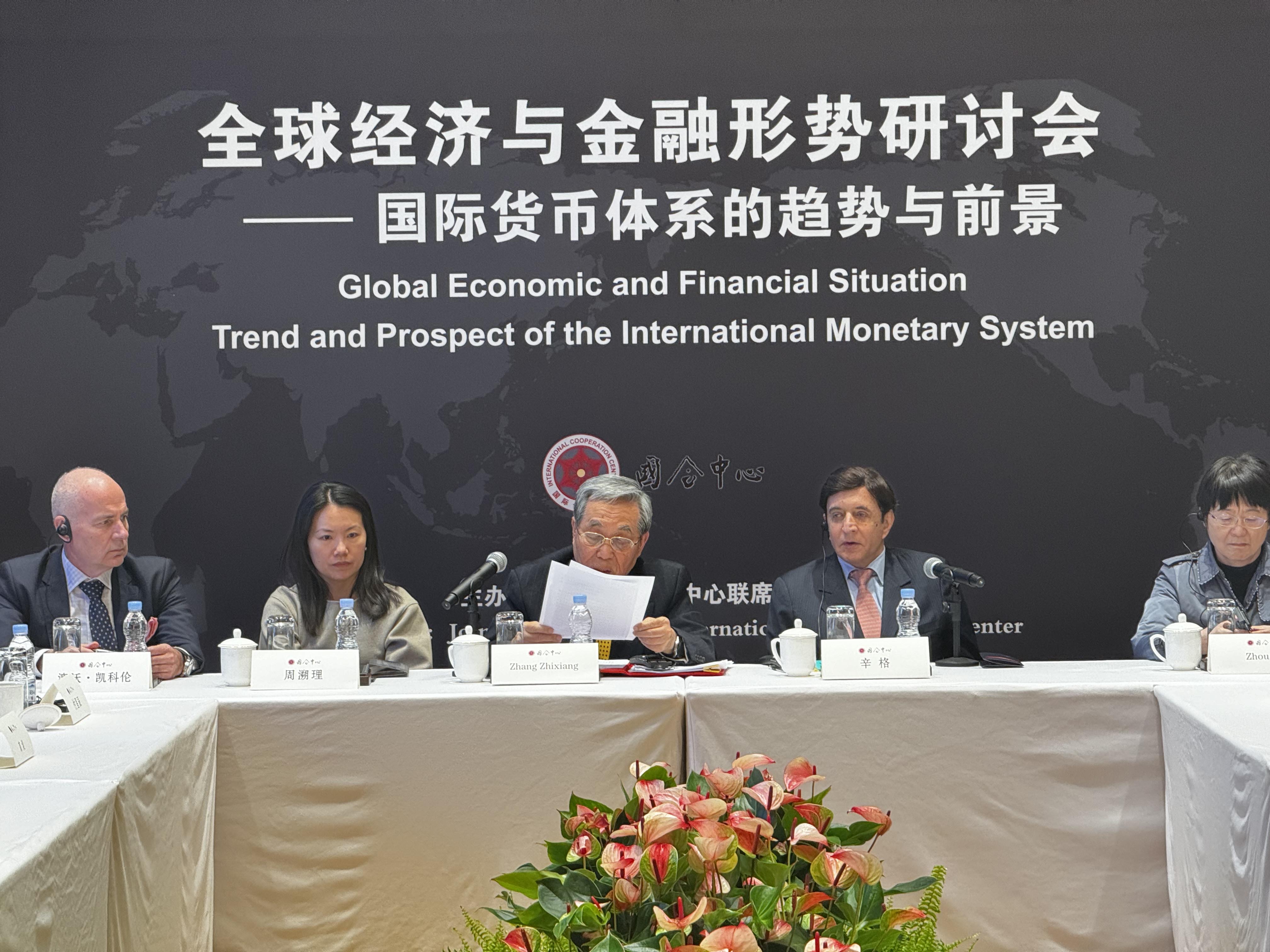
Mr. Zhang Zhixiang is presiding over the conference.
Mr. Zhang, on behalf of the ICC and the International Monetary Research Committee, made an opening speech entitled “Prospects of the International Monetary System”. He pointed out that recent years have witnessed the rapidly evolving global economic and financial landscape, and fiercer competition between the US dollar and non-US dollar currencies. Due to multiply factors such as the trend of economic multi-polarization and changes in geopolitical patterns, the unstable international monetary system is intertwined with incomplete global economic governance system, and the world’s economic development is transitioning into a new order. As a result, the trend and prospect of the international monetary system has once again become one of the focal issues to the global economic and financial sectors, which deserves in-depth study by all parties.
Mr. Zhang said that all international financial crises are related to, or even triggered by, the imbalanced liquidity. The IMF and the World Bank have held their annual meetings in the spring and fall of 2023. The World Economic Outlook Report and the Global Financial Stability Report issued by the IMF have emphasized the importance of maintaining effective control of liquidity in the international monetary system, and it is of great and urgent significance to make international liquidity a global public good. To address these issues, cooperation should be forged at the global, regional and national levels, and trust should be rebuilt among economies, so as to address challenges, seize opportunities, and inject confidence and momentum into sustainable and inclusive growth.
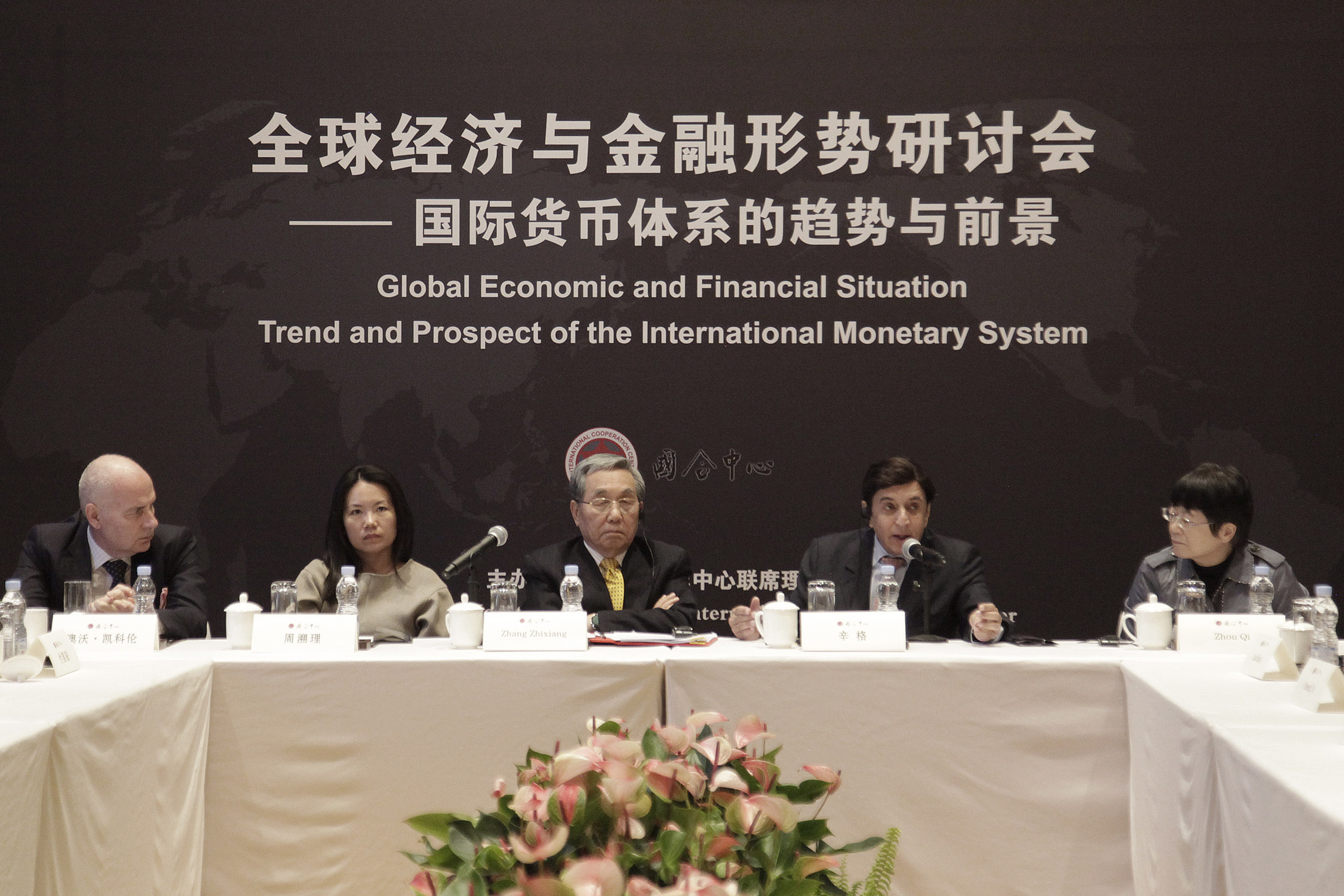
MR. Singh is delivering his keynote address.
Mr. Singh delivered a splendid keynote address on “Reforming the International Monetary System”. In his speech, he proposed that to deal with the present and future issues of the international monetary system, the IMF should prioritize six key reforms for a better and fairer system and strengthened global monetary governance, which is conducive to the authority and influence of the IMF. He suggested that a high-level meeting should be convened at the earliest opportunity to discuss those proposals, and the reforms need to be fully implemented to create a full-fledged global monetary institution that would forge close cooperation with other international multilateral institutions to facilitate cross-border payments and digitization. In addition, he suggested advancing research and reforms of the international monetary system under the G20 framework.
Zhou Suli, Minister-Counselor of Mission and Deputy Chief of the Singapore Embassy, Tadaaki Kawamura, Minister Financial Attache of Japanese Embassy in Beijing, Unny Sankar Ravi Sankar, Minister Counsellor of Economic Affairs in China, Auvo Kaikkonen, Head of European Investment Bank Regional Representation to China, Gautam Pandey, Commercial Representative of the Embassy of India in Beijing, Smail Halfaoui, Commercial Counselor of the Algerian Embassy in China, Fabrizio Costa, Economic and Financial Counsellor of the Embassy of Italy to China, Shaikh Muhammad Shariq, Chief Representative at National Bank of Pakistan in China, and senior diplomats and economic representatives from the Embassy of Indonesia in China, the Embassy of Switzerland in China, the Embassy of New Zealand in China, and the Embassy of the Philippines in China participated in the discussion and made speeches one after another.
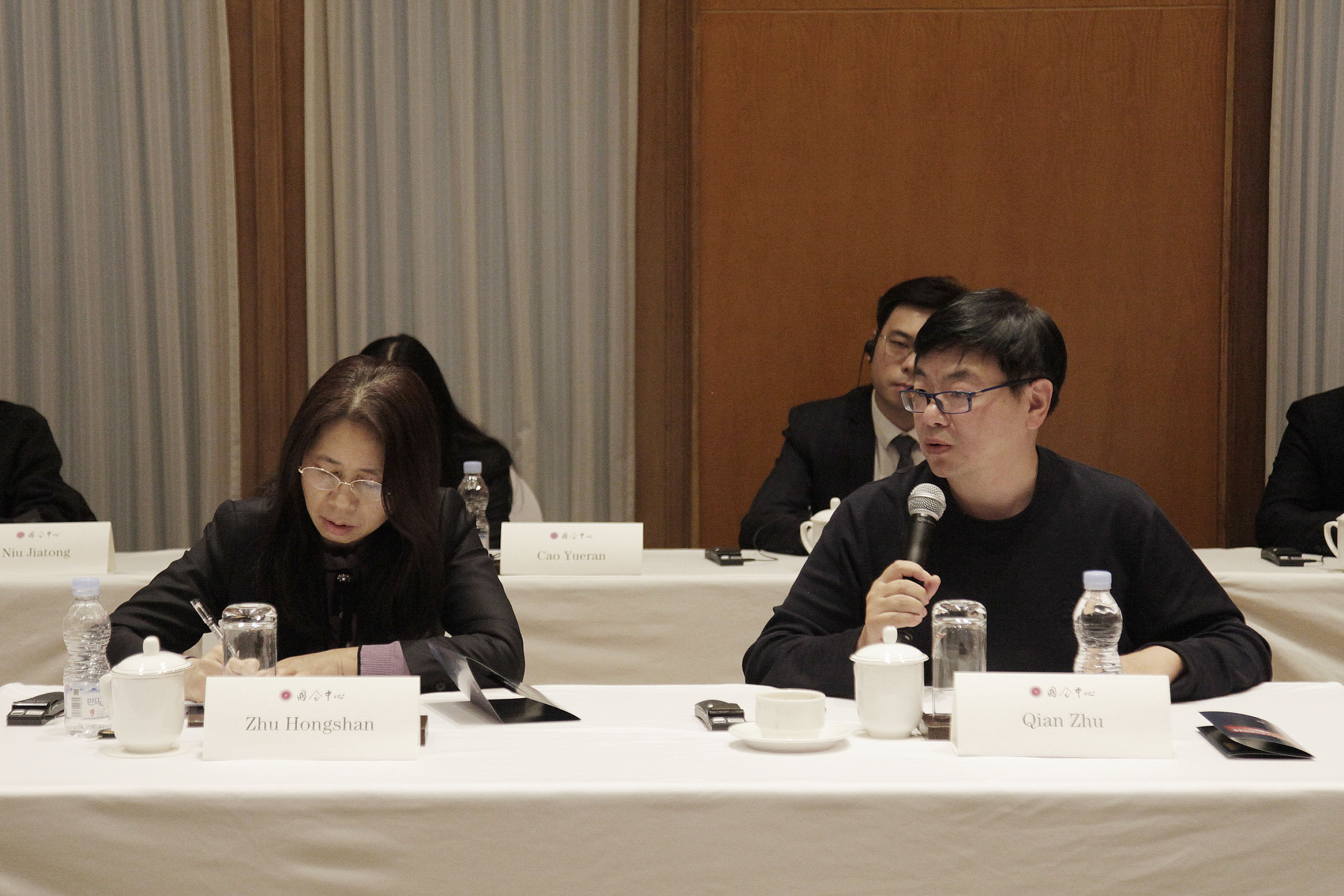
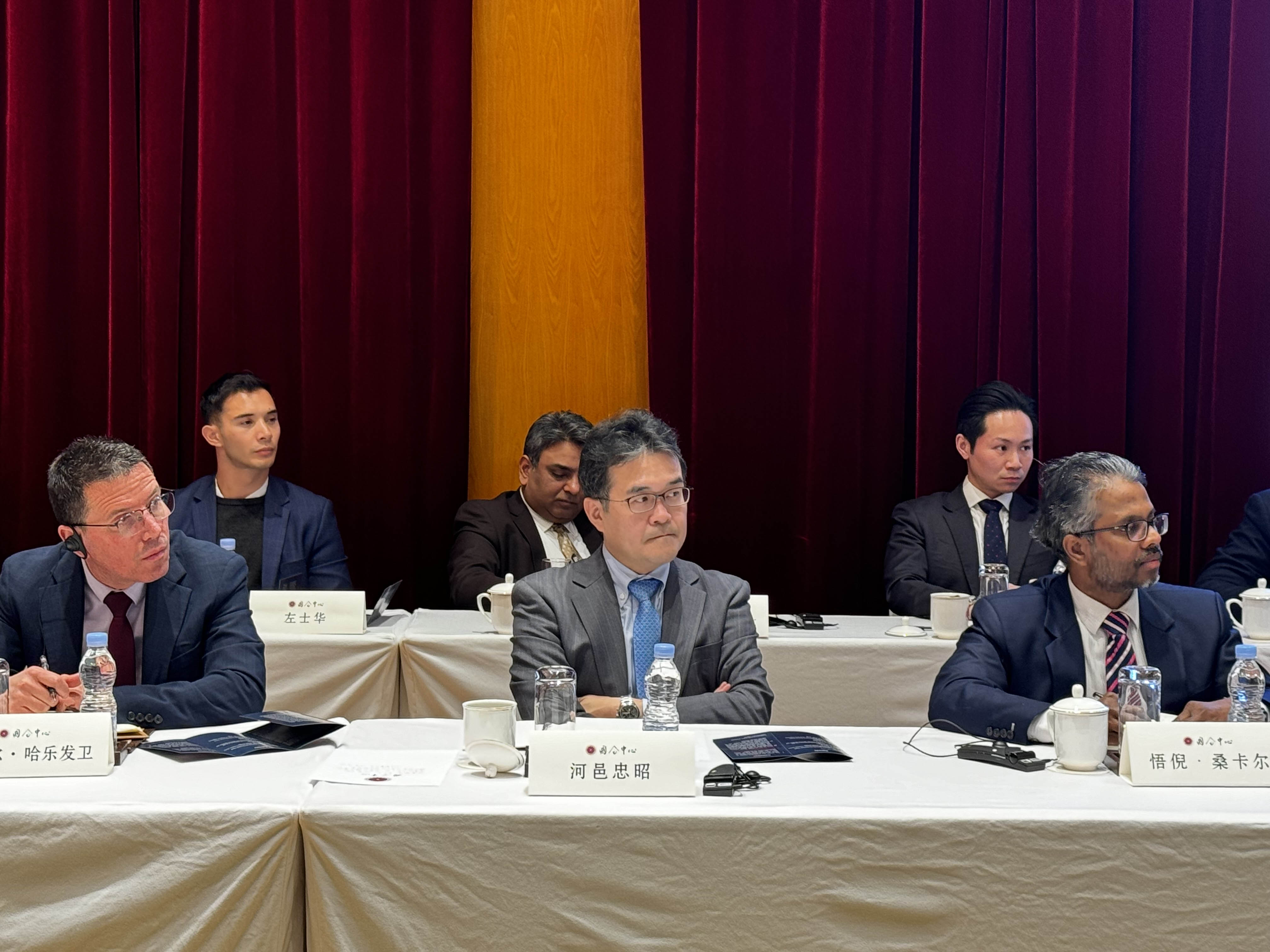
Chinese and foreign guests are discussing in the seminar.
The seminar revealed that the evolution of the international monetary system is mainly driven by traditional economic and geopolitical factors, and will receive huge impact from the rapidly developing technology. In the medium term, the diversification of international currencies and the weakening influence of the US dollar will continue to go hand in hand, central banks will pay more attention to the liquidity, safety and rate of return of currencies, and countries will be more sensitive to international political situations when selecting reserve currencies. In the context of the sluggishly advancing globalization, major economies are seeking more policy space. Based on their domestic economy and long-term national interests, economies are considering the best way to promote local currency settlement, regional monetary cooperation and internationalization of financial markets from both domestic and international levels. In this regard, developing economies will be better positioned to participate in the transformation of the international monetary system than at any time in history. The characteristics of the international monetary system, such as public goods, network effect and path dependency, determine that the stability of the monetary system requires multi-party coordination and cooperation. The international community should attach great importance to the vital role played by global policy coordination, and attempt to lead the establishment of efficient and sustainable multilateral governance institutions, so as to build a fair and just international cooperation platform.
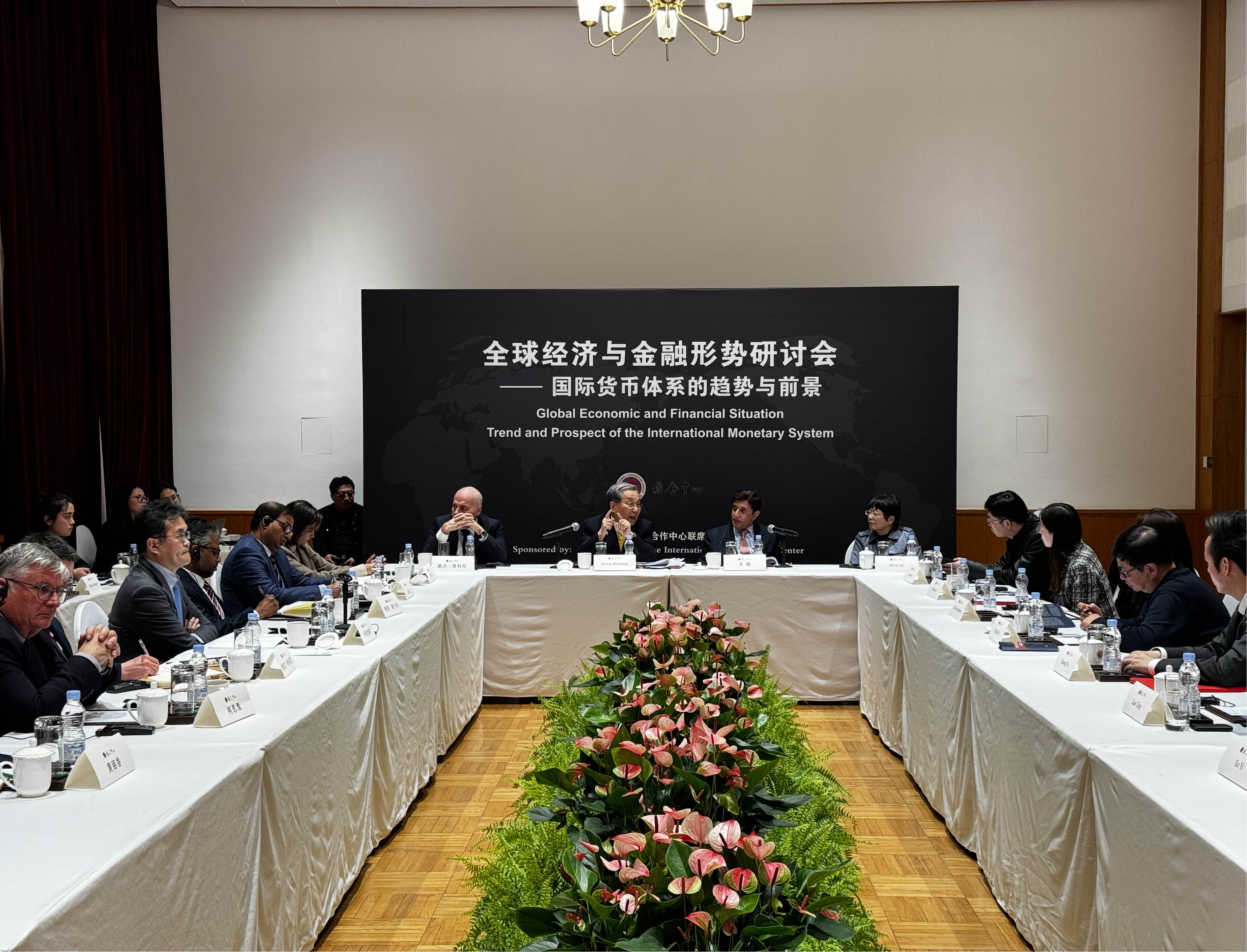
Meeting summary and research planning statement
Many guests have attended this conference with special invitation, including Zhou Qi, Senior Researcher at the Chinese Academy of Social Sciences and Director of the Institute of Global Governance and Development of the Renmin University of China; Zhang Yu, Deputy Director of the ICC Steering Committee; Qian Zhu, Editor-in-Chief of China National Culture Press and Deputy Director of the Central Liaison Committee of the China Association for Promoting Democracy; Liao Ying, from the Center for Global Competence Development of Tsinghua University; Cheng Yu, Executive Secretary General of the ICC; Zhang Bin, Deputy Director of the Hong Kong, Macao, Taiwan and Overseas Chinese Working Committee of the ICC; Wu Zhonglin, Executive Director of the ICC’s Development Committee; Xin Shaosong,Deputy director of the ICC’s Office; Zheng Guangyu, Deputy Director of the ICC’s Foreign Exchange Committee; Jiang Xiaopeng, and Cao Yueran, member of the ICC’s Foreign Exchange Committee; Zhu Hongshan, Senior Researcher of the ICC and former Deputy General Manager of the Strategic Development Department of China Communications Construction Group; Xu Yi, special research consultant of the ICC’s International Strategy Research Center; Huang Cheng, Deputy Director of the Center for Global Competence Development of Tsinghua University; Liu Qing, Associate Professor and Doctoral Supervisor of the School of Economics and Management of Tsinghua University; Fang Ming, Director of and Researcher at Global Financial Strategy Laboratory of Southwestern University of Finance and Economics.

